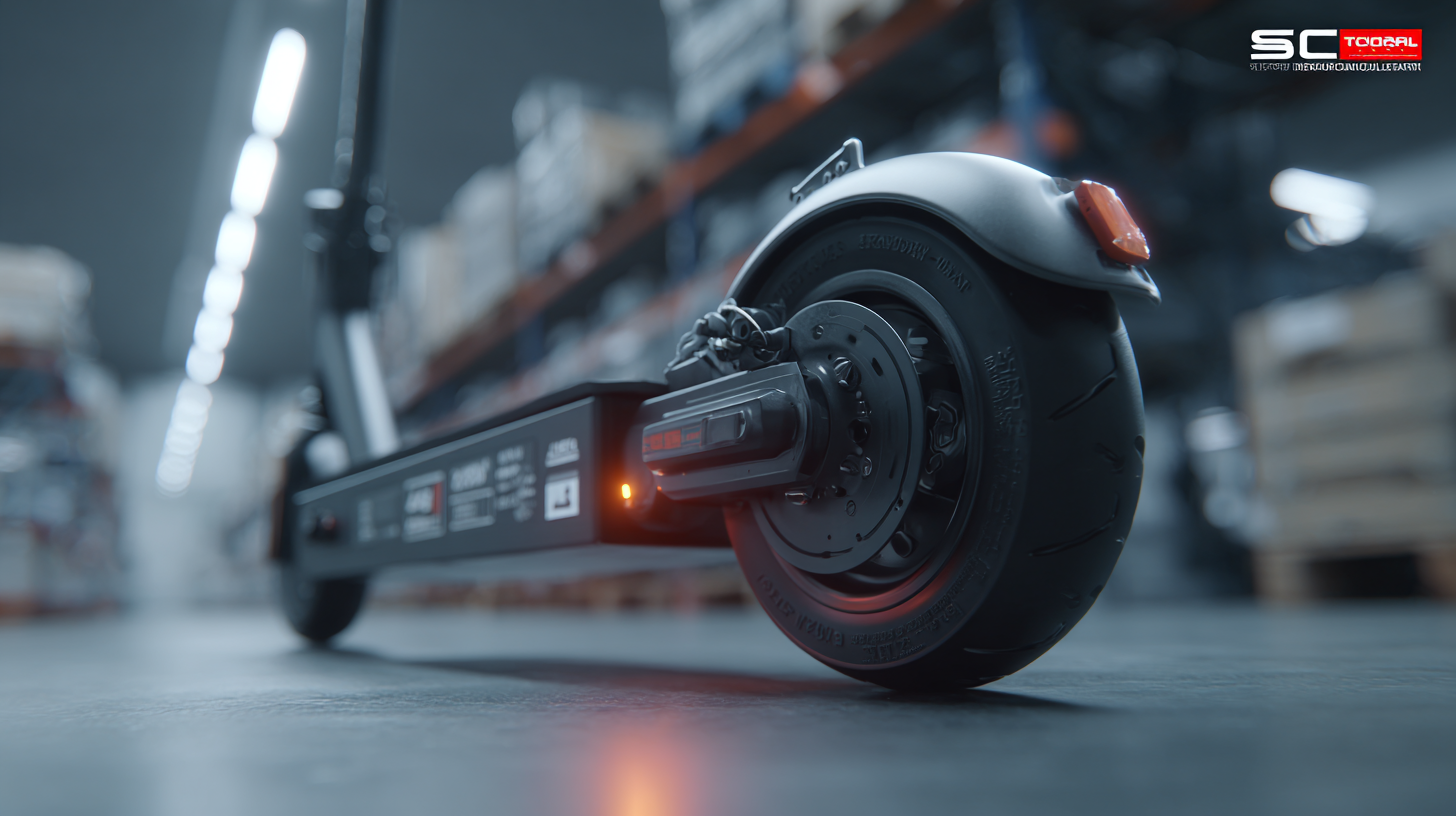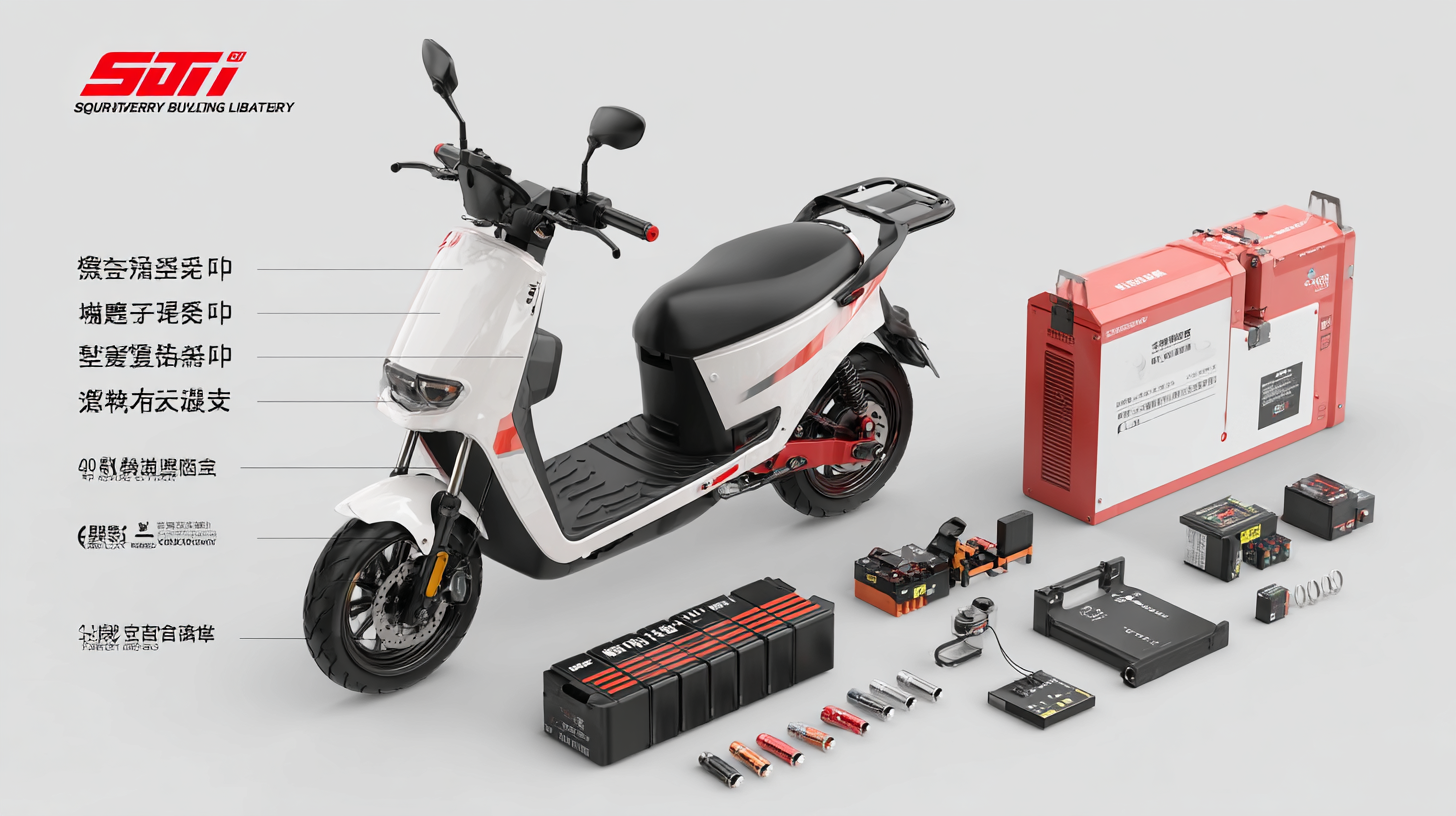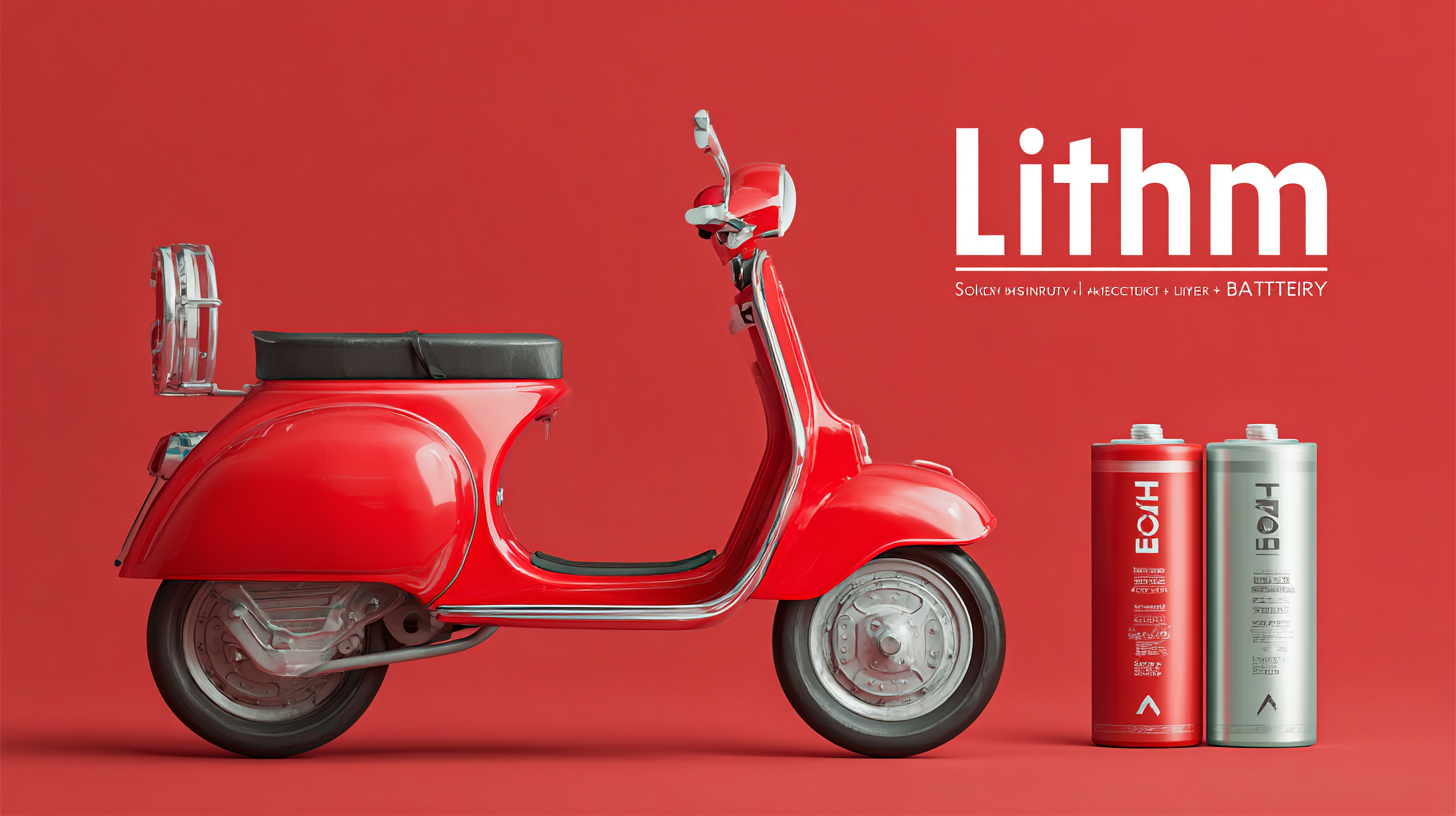- English
- Español
- Português
- русский
- Français
- 日本語
- Deutsch
- tiếng Việt
- Italiano
- Nederlands
- ภาษาไทย
- Polski
- 한국어
- Svenska
- magyar
- Malay
- বাংলা ভাষার
- Dansk
- Suomi
- हिन्दी
- Pilipino
- Türkçe
- Gaeilge
- العربية
- Indonesia
- Norsk
- تمل
- český
- ελληνικά
- український
- Javanese
- فارسی
- தமிழ்
- తెలుగు
- नेपाली
- Burmese
- български
- ລາວ
- Latine
- Қазақша
- Euskal
- Azərbaycan
- Slovenský jazyk
- Македонски
- Lietuvos
- Eesti Keel
- Română
- Slovenski
- मराठी
- Srpski језик

Understanding Industry Standards for Best Scooter Lithium Battery Production
 In recent years, the demand for efficient and sustainable transportation solutions has surged, largely driven by the rise of electric scooters. The global electric scooter market is projected to reach a staggering USD 41.98 billion by 2030, highlighting the need for high-quality components, particularly Scooter Lithium Batteries. As per industry reports, lithium batteries are favored for their lightweight properties and superior energy density, enabling scooters to achieve longer ranges and faster charging times. However, with increasing production, adhering to best practices and industry standards in lithium battery production becomes paramount. Evaluating standards set by organizations such as the International Electrotechnical Commission (IEC) and the Institute of Electrical and Electronics Engineers (IEEE) provides a framework for manufacturers to optimize performance while ensuring safety, efficiency, and environmental sustainability. Understanding these industry standards will be crucial for companies aiming to stay competitive in the burgeoning electric scooter landscape.
In recent years, the demand for efficient and sustainable transportation solutions has surged, largely driven by the rise of electric scooters. The global electric scooter market is projected to reach a staggering USD 41.98 billion by 2030, highlighting the need for high-quality components, particularly Scooter Lithium Batteries. As per industry reports, lithium batteries are favored for their lightweight properties and superior energy density, enabling scooters to achieve longer ranges and faster charging times. However, with increasing production, adhering to best practices and industry standards in lithium battery production becomes paramount. Evaluating standards set by organizations such as the International Electrotechnical Commission (IEC) and the Institute of Electrical and Electronics Engineers (IEEE) provides a framework for manufacturers to optimize performance while ensuring safety, efficiency, and environmental sustainability. Understanding these industry standards will be crucial for companies aiming to stay competitive in the burgeoning electric scooter landscape.
Overview of Lithium Battery Types Used in Scooters
When discussing the types of lithium batteries used in scooters, it's important to consider the various chemistries that cater to different performance needs. The most common lithium battery types found in scooters are Lithium-Ion (Li-ion) and Lithium Iron Phosphate (LiFePO4).
Li-ion batteries are favored for their high energy density, allowing scooters to travel longer distances on a single charge. However, they require proper management systems to prevent overheating. On the other hand, LiFePO4 batteries may not offer the same energy density but excel in safety and longevity. Their robust thermal stability makes them a suitable option for those prioritizing safety over range.
Tips: When choosing a scooter battery, always check the battery management system (BMS) to ensure it has essential safety features like overcharge protection. Additionally, consider the weight and size of the battery, as they can significantly affect the scooter's performance and portability. Regular maintenance, such as checking for corrosion on terminals, can also enhance battery longevity and reliability.
Understanding Industry Standards for Best Scooter Lithium Battery Production
| Battery Type | Nominal Voltage (V) | Capacity (Ah) | Energy (Wh) | Weight (kg) | Cycle Life | Cost ($) |
|---|---|---|---|---|---|---|
| Lithium-ion (Li-ion) | 36 | 10 | 360 | 2.5 | 500 | 150 |
| Lithium Iron Phosphate (LiFePO4) | 12 | 20 | 240 | 4.0 | 2000 | 180 |
| Lithium Polymer (LiPo) | 22.2 | 15 | 333 | 1.5 | 300 | 130 |
Key Industry Standards for Lithium Battery Production
When it comes to lithium battery production for scooters, adhering to key industry standards is crucial for ensuring safety, efficiency, and longevity. One of the primary standards is the International Electrotechnical Commission (IEC) 62133, which sets guidelines for the safe transport and use of lithium-ion batteries. Compliance with this standard helps manufacturers mitigate risks associated with battery failures, such as thermal runaway and short circuits, ultimately protecting users and extending the life expectancy of the batteries.
Another significant standard is the Underwriters Laboratories (UL) certification, specifically UL 2054, which focuses on the safety of battery packs. Companies that design and produce scooter batteries must ensure that their products meet these stringent safety requirements. This certification process involves rigorous testing of batteries for durability, performance under various conditions, and the potential hazards they may pose. Furthermore, adherence to these standards not only ensures compliance with legal regulations but also builds consumer trust, positioning brands as reliable and responsible manufacturers in a competitive market.
The Importance of Quality Control in Battery Manufacturing
Quality control is a critical aspect of lithium battery manufacturing, particularly in the scooter industry where safety and efficiency are paramount. Each stage of production must be rigorously monitored to ensure that the batteries not only meet industry standards but also perform reliably under various conditions. The manufacturing process involves multiple steps, from sourcing high-quality raw materials to assembling the final battery cells. Maintaining strict quality control protocols helps identify any defects early, reducing the risk of product failures that could endanger users and damage a company's reputation.

Additionally, implementing quality control measures ensures compliance with regulatory requirements, which is essential for gaining consumer trust. Regular testing and evaluation of battery performance, such as capacity retention and cycle life, guarantee that the final products deliver the promised performance. Innovative techniques like statistical process control and real-time monitoring systems can further enhance quality assurance efforts, leading to consistently superior products. As the demand for electric scooters rises, manufacturers must prioritize quality control in their processes to remain competitive and uphold the industry's safety standards.
Environmental Considerations in Lithium Battery Production
The production of lithium batteries is inherently linked to various environmental concerns that must be addressed to foster sustainable practices in the industry. The extraction of lithium, often sourced from brine pools or hard rock, can lead to significant ecological disturbances, including water depletion and habitat destruction. According to a report by the International Energy Agency (IEA), the demand for lithium is projected to reach 2.5 million tons by 2030, underscoring the urgency of adopting eco-friendly mining and extraction techniques to mitigate these impacts.
Additionally, the energy-intensive nature of lithium battery manufacturing contributes to carbon emissions. Studies reveal that the production of lithium-ion batteries can generate over 150 kg of CO2 emissions per kWh. Hence, industries are increasingly focusing on optimizing processes and utilizing renewable energy sources to cut down their carbon footprint. Reports from the Global Battery Alliance indicate that transitioning to cleaner technologies in battery production could reduce emissions by up to 50%. This shift not only helps to comply with evolving regulatory standards but also addresses the growing consumer demand for environmentally responsible products.
Innovations and Future Trends in Scooter Battery Technology
The scooter industry is on the cusp of a battery technology revolution, driven by innovations aimed at increasing efficiency, lifespan, and sustainability. Current research indicates that lithium-ion batteries hold approximately 70% market share in the electric scooter sector, a trend that is anticipated to rise as manufacturers explore advanced materials like solid-state batteries. According to a 2023 report by Navigant Research, the global electric scooter battery market is projected to grow by 12% annually over the next five years, underscoring the demand for more effective energy solutions.
Tips for scooter battery longevity include maintaining optimal charging habits by avoiding overcharging and discharging to below 20%. Regularly monitoring the battery's health through available apps can also help identify issues before they escalate, ensuring a smooth ride. Furthermore, utilizing fast-charging technology, which is rapidly being adopted, can significantly reduce downtime for users, enhancing convenience without compromising battery health.
Emerging trends in battery production include the exploration of sustainable materials, such as recycled lithium and bio-engineered components, aimed at reducing environmental impact. The industry is also witnessing the advent of modular battery designs, allowing for easier upgrades and replacements. As companies invest in research and development, the future of scooter battery technology appears promising, catering to the growing consumer demand for eco-friendly and efficient transport solutions.

